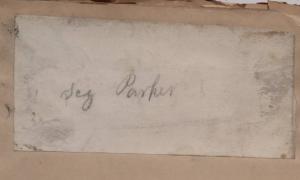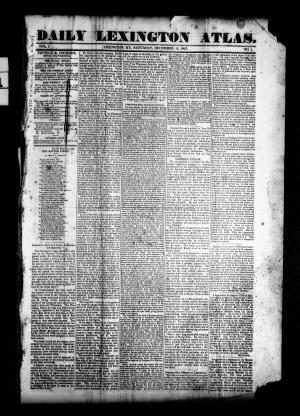

Lexington’s African American Heritage Walking Tour
Join us for an on-demand walking tour of Downtown Lexington’s African American heritage sites.

Join us for an on-demand walking tour of Downtown Lexington’s African American heritage sites.

Explore topics related to Science, Technology, Engineering, Art, and Math (STEAM) in this space for youth, grades 3-12.

Learn how the Lexington Public Library Foundation empowers change within our library system.

Learn or develop a personal or professional skill with LinkedIn Learning classes, available for free with your library card.

Did you know physical materials renew automatically if they don’t have a waiting list? Check your account online to see the status of your items.


The Cyrus Parker Jones Funeral Notice collection contains 667 funeral cards of Lexington residents during the years of 1806-1886. Cyrus Parker Jones was once enslaved by the Parker family, and was emancipated upon the death of Elizabeth Parker, Mary Todd Lincoln’s grandmother, in 1849. The notices include deaths of people belonging to prominent families, infants, and at least seven free blacks.
Prior to his death in 1887, Jones donated his collection to a trustee of the Lexington Public Library, James M. Duff. Duff then donated the collection to the Library in 1900. It appears Duff added a few funeral notices to the book himself, and it ends with a notice that the library is closed for Duff's funeral, inserted later by an unknown library staff member. The physical collection is named “Duff’s Funeral Notices”, but we have renamed the digital collection to recognize Cyrus Parker Jones, and accurately reflect the collection’s origin.
The Funeral Notices are searchable by keyword.

The Daily Lexington Atlas ran from December 11, 1847 through November 20, 1848 and was Lexington’s first daily paper, and the first to publish information from the telegraph lines. It was supportive of the Whig Party, which counted Henry Clay among its members. The Daily Lexington Atlas is described by William Perrin in his 1882 History of Fayette County Kentucky as a “red-hot Whig and fiery southern” publication.
Though short-lived, the paper covered many significant events including: the final year of the Mexican-American War, The Irish Rising of 1848, the debate surrounding emancipation of enslaved Kentuckians, the 1848 presidential election and the local election for Kentucky Governor. It also includes a few marriage and death notices from Lexington and surrounding counties. There are occasional notices of outbreaks of disease in other parts of the country, most commonly dysentery, which they called a “mysterious new disease.” They note an outbreak of cholera in Europe in October 1848; Lexington would see a second outbreak of cholera in 1849.
Perrin claims the paper had an extensive subscriber list, but had to “give up the ghost after several months disastrous experience” due to the expense of the paper. After his wife’s death on September 27, J.B. Cochran put his shares of the paper up for sale, and beginning in October, notices appear asking subscribers to pay on time.
This collection was digitized from microfilm by the University of Kentucky for Lexington Public Library. Toward the end of the run of the paper, there is significant bleed through on the pages, and in some cases the OCR (optical character recognition) quality is poor.
While the paper was considered a daily paper, it did not publish on Sundays. The library’s collection covers December 11, 1847 (first issue) through November 20, 1848, the final issue with J. B. Cochran as editor and proprietor. The paper continued through sometime in 1849 with N. L. Finnell as sole editor.
Amended and Restated Bylaws of the Friends of the Lexington Public Library, Inc.